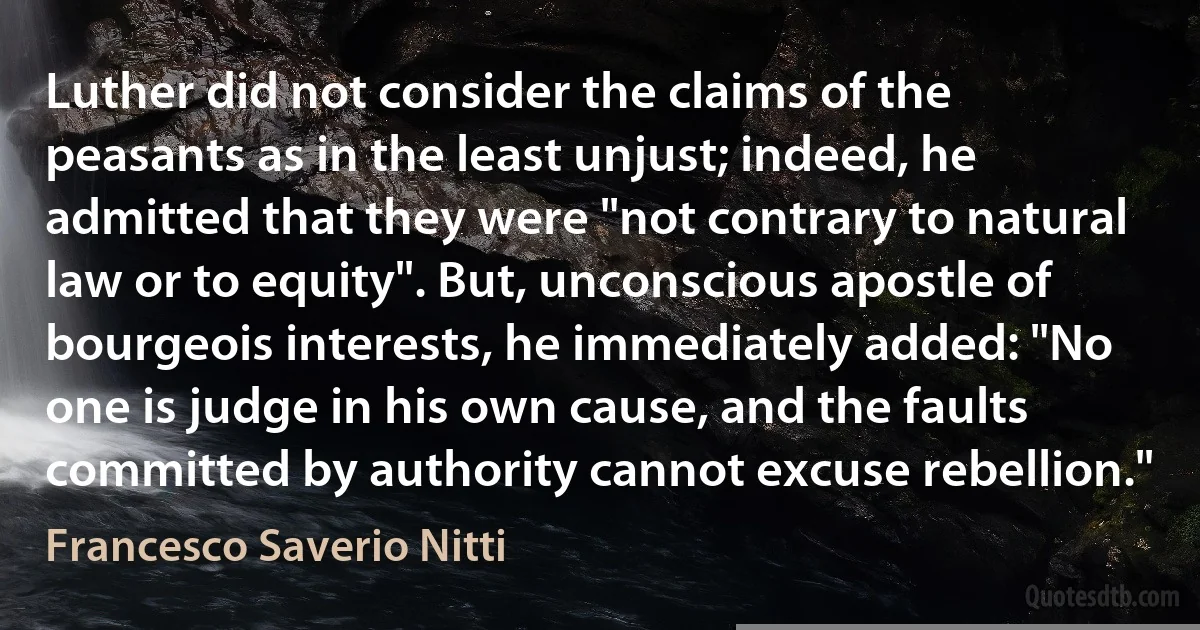
Luther did not consider the claims of the peasants as in the least unjust; indeed, he admitted that they were "not contrary to natural law or to equity". But, unconscious apostle of bourgeois interests, he immediately added: "No one is judge in his own cause, and the faults committed by authority cannot excuse rebellion."
Francesco Saverio NittiRelated topics
authority bourgeois cause commit equity excuse judge law least natural unconscious lutherRelated quotes
To understand political power right, and derive it from its original, we must consider, what state all men are naturally in, and that is, a state of perfect freedom to order their actions, and dispose of their possessions and persons, as they think fit, within the bounds of the law of nature, without asking leave, or depending upon the will of any other man.

John Locke
In appointing our Ambassador to the United States at this important time, with the 1936 crisis ahead, such considerations as dignity, past career, equity and sentiment must be discarded and a man of ability chosen in the interests of the country. In the light of these considerations, we find Hiroshi Saito, present Minister of Holland, the right person for the post.

Sadao Araki
A man's natural rights are his own, against the whole world; and any infringement of them is equally a crime, whether committed by one man, or by millions; whether committed by one man, calling himself a robber, (or by any other name indicating his true character,) or by millions, calling themselves a government.

Lysander Spooner
